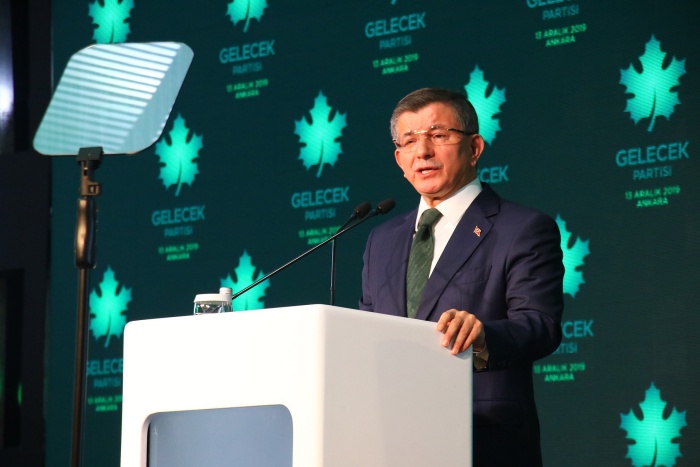A former Turkish premier and ex-ally of President Recep Tayyip Erdoğan launched a new party on Friday, saying it would stand against “cult of the leader” politics, AFP reported.
Ahmet Davutoğlu, who served as prime minister between 2014 and 2016 and was chairman of Erdoğan’s ruling party, formally presented the Future Party (GP) at a ceremony in Ankara.
“As a party, we reject a style of politics where there is a cult of the leader and passive personnel,” Davutoğlu said, standing beneath a large banner featuring the revered founder of the Turkish Republic, Mustafa Kemal Atatürk.
Davutoğlu, 60, did not mention Erdoğan by name during his nearly one hour speech but criticized the sweeping powers given to the presidency under constitutional amendments passed in a 2017 referendum.
“It won’t be possible to have a democracy with the system continuing like this,” said Davutoğlu, who resigned from the ruling Justice and Development Party (AKP) in September.
Analysts say Davutoğlu is seeking to peel away conservative Muslim voters from the AKP, and while few expect him to attract more than a fraction of the electorate, it could be enough to cause problems for Erdoğan.
Davutoğlu insisted his party would stand for minority rights, the rule of law, freedom of the press and an independent judiciary — in a swipe at the deterioration of civil rights during Erdogan’s 16-year rule.
He described party’s ideological stance as “liberalism with reverence for traditional values.”
There are Turkish citizens with Greek, Armenian and Assyrian roots among the founding members, one party official underlined, according to the T24 news website.
Once a close ally of Erdoğan, the two men fell out over a number of issues, most notably the changes to the constitution, and he was forced to resign as premier in May 2016.
He is not the only former Erdoğan ally challenging the president. Ex-economy minister Ali Babacan is expected to launch his party later this month.
Davutoğlu previously served as foreign minister during a particularly rocky period in Turkey’s international relations in the early 2010s.
He has been fiercely criticized as the architect of Ankara’s efforts to take a more assertive stance across the Middle East — backing the Muslim Brotherhood and its allies in several countries, and supporting rebels in Syria — which ultimately left Turkey with few friends in the region.

